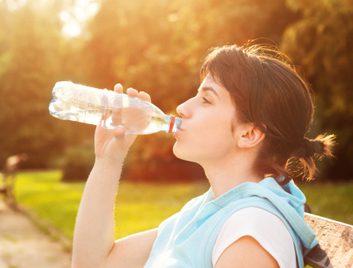
Normal water needs
First off, needing to drink 8 tall glasses of water a day is a myth. What you really need is enough fluid to replace what you lose each day in your sweat, urine, breath, and other bodily excretions. That’s about 8 to 10 cups of water. Because we get about 4 cups’ worth from fruits, vegetables, and other foods, that leaves 4 to 6 cups for you to make up with beverages.
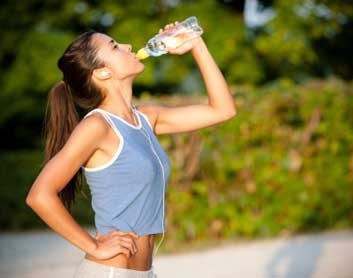
How to tell if you’re getting enough water
The typical person urinates 4 to 8 times a day, but that varies based on each person’s unique anatomy. More telling is the color and smell of your urine; assuming you’ve had a normal diet, your urine should be pale yellow and without a strong odor. If it’s dark yellow or smells like ammonia, you probably need to drink more water. Urine can have other colors based on what you eat, so if occasionally your tint is unusual, don’t panic. It likely will return to normal the next time you visit the loo in a few hours.
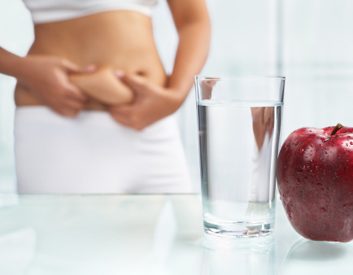
How much water to drink for weight loss
Water can help rev your metabolism when you’re trying to lose weight. To help, put five rubber bands around your wrist every morning. That’s how many 16-ounce bottles of water you should drink during the day to rev up your metabolism, helping to burn more calories. Researchers estimate that over a year, increasing your water consumption by 1.5 liters a day would burn an extra 17,400 calories, or about 5 pounds (2.25 kilograms) worth. And because much of the increased metabolic rate is due to the body’s efforts to heat the liquid, make sure the water you’re drinking is icy cold.
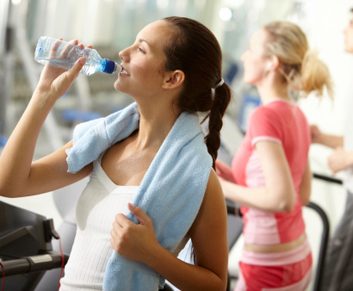
How much water to drink during exercise
Of course, you may need more water in hot weather or if you’re exercising or being more physically active than usual. So if you’re still thirsty, sip more. About two hours before exercising, drink two to three cups of water. This will help ensure that you won’t be dehydrated during your workout. Then, have on hand enough water to drink about a cup every 15 minutes of exercise. Afterwards, sip another two or three cups.
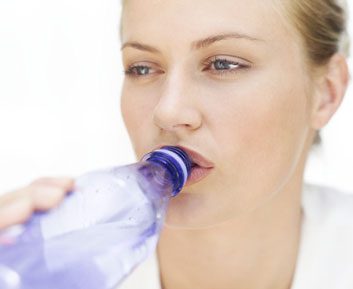
How much water is too much?
It is possible to have too much of a good thing, even water? You bet. Something called “water intoxication” is common among marathon runners, but it can also happen to anyone who’s exerting themselves for an extended period and guzzling lots of H2O. Physical stress reduces the kidneys’ ability to send urine to the bladder for excretion. If that happens, fluid levels could build in your body and brain, making brain cells swell and leading to headaches, nausea, vomiting, disorientation, and in some cases, death. To avoid it, drink enough to quench your thirst, not gallons. And if you need to drink large amounts of fluid while exercising, use energy drinks that have vitamins and electrolytes, too.
Related:
• 9 healthy hydrating foods
• How to stay hydrated while you exercise
• The best reusable water bottles
